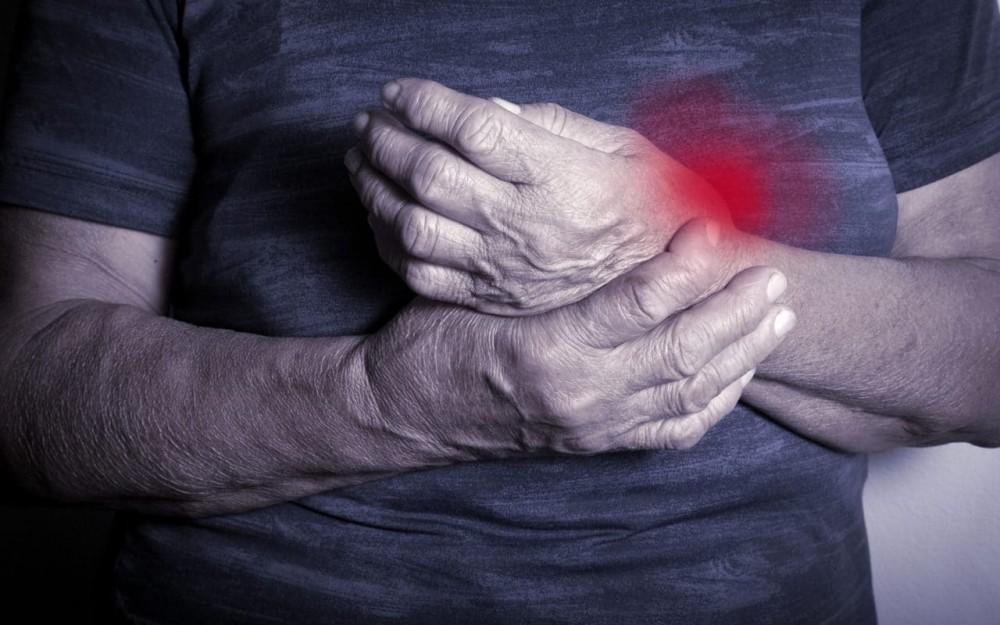
Rheumatoid Arthritis | Symptoms, Diagnosis, Treatment Options

There are hundreds of different types of arthritis, which is a broad term used to describe joint inflammation. Rheumatoid arthritis, one of the most common arthritic conditions (along with osteoarthritis and gout), is a type of autoimmune disorder affecting over 1.3 million Americans and an estimated 1% of the global population according to research. Dr. Steven Ferrer and Dr. Kevin McElroy of Progressive Spine & Sports Medicine are leading physicians in the Northern New Jersey area offering comprehensive, customized, and compassionate care for people with RA, using a combination of orthopedic, rehabilitative, and non-surgical pain management techniques.
Causes, Signs & Symptoms of Rheumatoid Arthritis (RA)
Autoimmune diseases occur when the body launches an abnormal immune system response to its own tissue. Other examples of autoimmune disorders include lupus, multiple sclerosis, psoriasis, and Chron’s disease.
In the case of rheumatoid arthritis (RA), a person’s immune system triggers an antibody attack against its own joint tissue, specifically the synovial fluid that acts as a natural lubricant in certain joints. Hallmark symptoms of RA include chronic inflammation, swelling, stiffness, pain, and deformities of the joints within the wrist, hands, and feet. These symptoms typically affect multiple joints on both the left and right sides of the body. As the disease progresses into its later stages, additional clinical signs and symptoms may include depression, fatigue, low-grade fevers, loss of appetite, weight loss, and general malaise.
Who Gets RA?
People of all ages and ethnicities can get RA (in children, it’s known as juvenile rheumatoid arthritis). However, it most commonly affects women (at a rate of 3:1 compared to men) with average age of onset between 30 and 60. It’s diagnosed via a combination of a physical examination, family and personal history assessment, blood tests, and diagnostic imaging that can identify bone density issues and the degree of joint inflammation.
Risk factors for the autoimmune disease include genetics, hormones, environment (e.g., exposure to pollution, chemicals, secondhand smoke, or joint trauma), and lifestyle (specifically, a positive smoking history, which may increase a person’s risk for RA by as much as 2.4%).
How Our Ramsey Pain Management Team Helps People Living with RA
At Progressive Spine & Sports Medicine, our Ramsey pain management team has worked with hundreds of men and women struggling to carry on a typical, pain-free life with RA and other autoimmune and/or chronic health conditions.
Early and routine treatment will generally make the biggest positive impact for the RA sufferer. Here are a few of the services we offer that can help:
- Physical therapy, to maximize joint range of motion and function, muscle strength, and overall physical activity levels
- Acupuncture, to reduce pain and promote increased circulation and healing growth factors
- Lifestyle and nutritional advice to help promote anti-inflammation, smoking cessation, and other healthy habits
Are you or someone you know living with RA? Don’t let your pain hold you back from living the life you want full of the activities you love! Contact Progressive Spine & Sports Medicine in Ramsey, New Jersey at (201) 962-9199 to schedule your initial consultation today.
You Might Also Enjoy...


Treating Your Migraines With Botox® and How It Works

Why Radiofrequency Ablation Might Be the Answer to Eliminating Your Leg Cramps

How Acupuncture Can Treat Knee Pain

Does Sclerotherapy for Spider Veins Require Continued Treatments?

